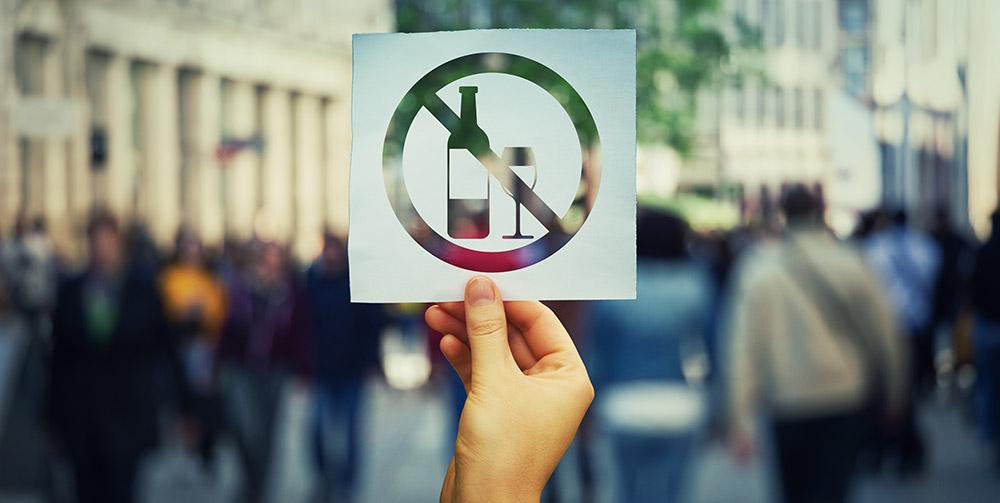The Benefits of an Alcohol Detox
When enough, is enough:
Choosing to end your relationship with alcohol is a big step in making a choice to put yourself, your health, your loved ones and your life first.
Whether you are a chronic drinker, binge drinker, heavy drinker or fighting alcohol use disorder, choosing to find a balance to your life without alcohol is hard, but knowing the reasons you should stop drinking alcohol can help you stay focused.

What are the effects of long term, heavy drinking on my mental and physical health?
Whilst there are ‘low risk’ and ‘high’ risk drinking levels, there are no safe drinking levels because any alcohol consumption leads to effects on your health – mentally & physically.
Low risk drinking is considered as less than 14 units of alcohol for men and 8 units for women spread over a week, with several drink-free days in between.
The health effects you can develop after a 10 to 20 year period of ‘low’ risk drinking are:
- cancers of the mouth, throat and breast
- stroke
- heart disease
- liver disease
- brain damage
- damage to the nervous system.

Chronic heavy drinking increases those risks as well as the possibility of:
- Depression
- Dementia
- Anaemia – your body can’t make enough healthy red blood cells to move oxygen around
- Seizures – long-term alcohol abuse may raise your chances for epilepsy. And alcohol withdrawal after heavy drinking can cause seizures
- Gout – painful inflammation (arthritis) in your joints from the buildup of uric acid from alcohol
- Infections – your liver plays a vital role in your immune system, the damage caused by alcohol consumption can hinder your immune cells fighting capabilities, leaving you prone to viral and bacterial infections
- Sleep issues.
What if I Only Drink Once a Week?
If you are moderating your consumption during your weekly jaunt to the pub by:
- limiting how much you drink
- drinking slower
- Eating while drinking
- alternating with water or non-alcoholic drinks
your health risks are reduced, but if your weekly pub session is more of a binging session you can increase your risks of:
- accidents resulting in injury.
- misjudging risky situations and taking chances you would normally never take
- losing self-control and having lowered inhibitions leading to risks such as unprotected sex or getting involved in violence
How will quitting alcohol benefit me?
- Less chance of an accident – alcohol plays a role in at least half of all trauma injuries and fatalities from burns, drownings and homicides. Traffic accidents and fatal fall risks are as high as four out of 10 when alcohol is involved. (https://www.webmd.com/mental-health/addiction/ss/slideshow-quit-alcohol-effects)
- A healthier heart – no alcohol consumption can lower your blood pressure and risk of heart failure
- Your liver will thank you – alcohol is toxic to your body and it’s your liver’s job to filter toxins, saying goodby to alcohol gives your liver a chance to repair itself and even regenerate.
- Weight loss
- Improved relationships with your family, friends and colleagues.
- Reduction in anxiety, depression and an elevation in your self esteem
- Whilst not scientifically proven yet, quitting alcohol may lower your risk of some cancers
- Sexual dysfunction (erectile dysfunction) & loss of libido may be reduced once alcohol is out of the picture
- Your sleep habits will improve
- Your immune system will get a boost
- Your mental clarity, motor skills and memory will improve as you recover
What options do I have to ensure I’m safe during my detox?
If you’ve been drinking and abusing alcohol for some time, and you plan to detox from alcohol at home, we strongly recommend you seek medical advice from your GP first. You can also visit the NHS website for help around alcohol addiction treatment options.
Alternatively, consulting a treatment centre will help ease any discomfort and/or address serious complications that may occur. You can expect to receive 24/7 medical supervision, monitoring and when needed, medical intervention to help you stay as safe and comfortable as possible while dealing with the symptoms of your alcohol withdrawal.
What Should I do Once I’ve Detoxed from Alcohol?
This depends entirely on your relationship with alcohol. If you’ve been a heavy drinker and you have been previously unable to control your drinking habits, it’s possible you may have developed alcohol addiction.
Following a successful completion of detox, a continued alcohol rehab programme or outpatient rehabilitation program may be recommended to allow further work toward recovery and relapse prevention.
Services that may be included as a part of a comprehensive treatment plan for alcohol use disorders are:
- Group Therapy
- Individual Counselling
- Family Counselling
- Support Group Meetings
- Wellness Activities
- Medication Treatments
For more information on how you can benefit from quitting drinking, give us a call.
